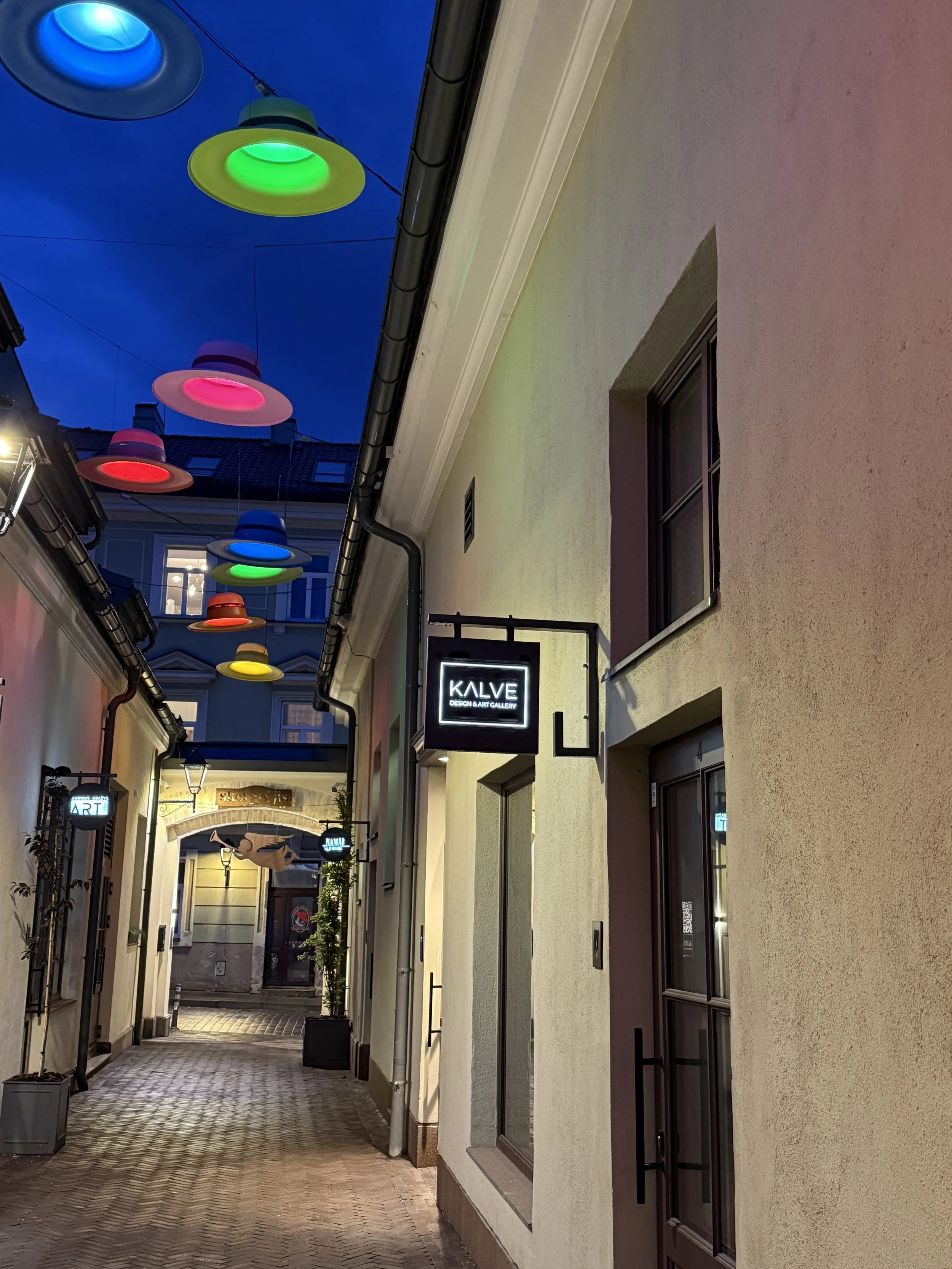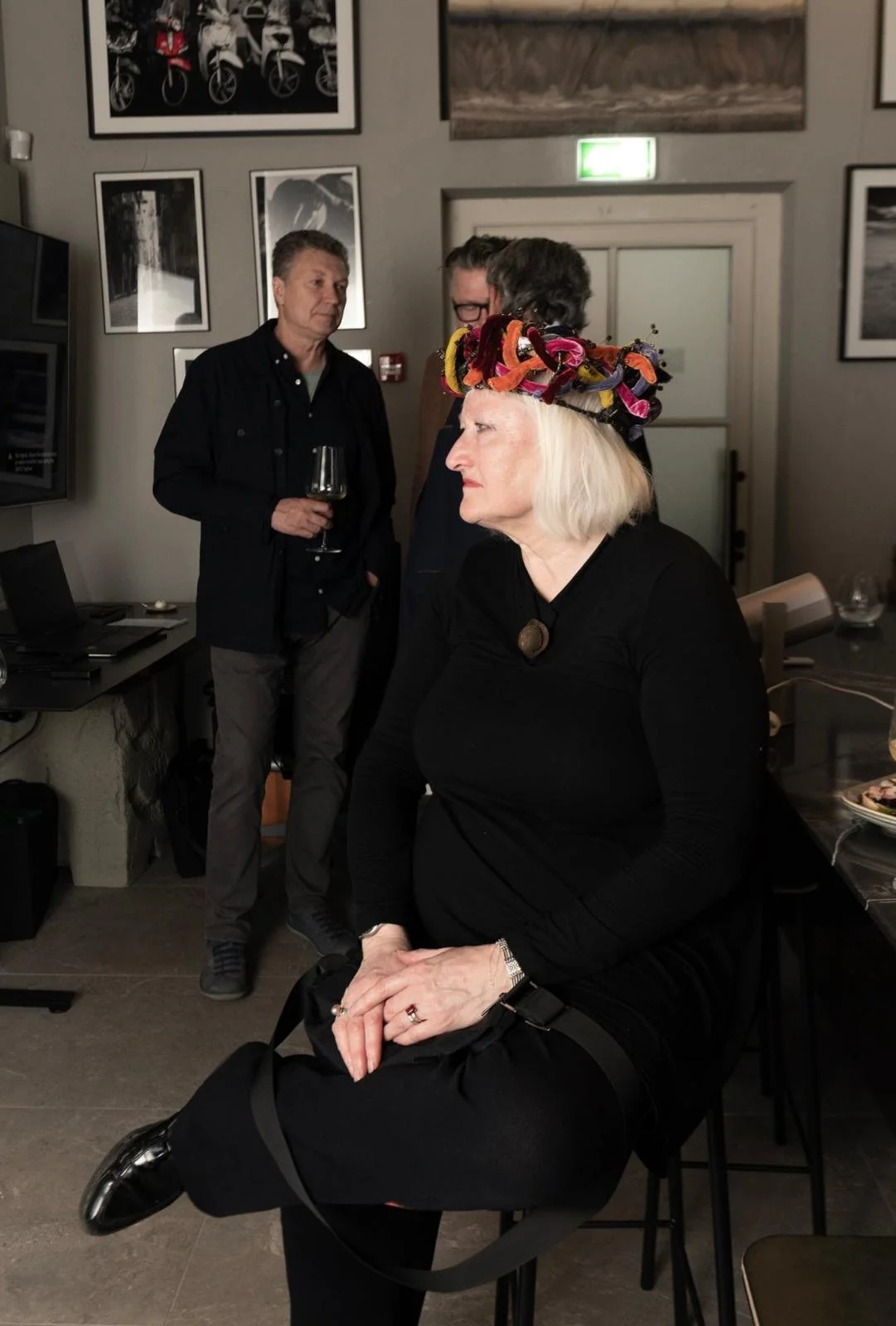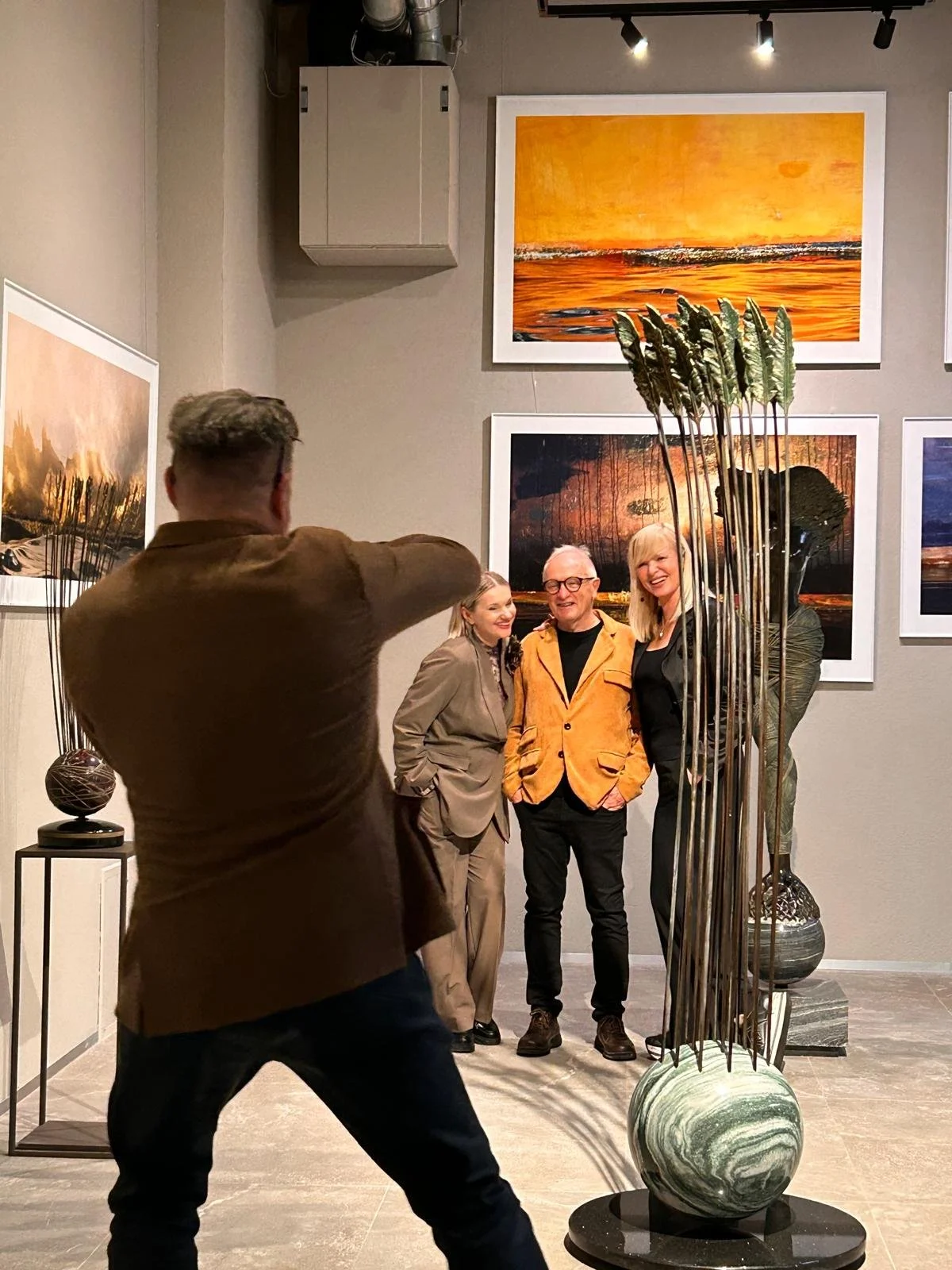Opening Reflections: The Indeterminate Sublime Arrives in Vilnius
Last Thursday May 22nd in the evening, a powerful ripple of abstraction and human connection swept through the Kalve Art and Design Gallery in Vilnius, Lithuania. The opening of The Indeterminate Sublime, my Rothko Museum touring exhibition, marked more than the continuation of a European journey—it marked a moment of deep synchronicity and unexpected meaning.
The invitation to exhibit had came from Ramunė and Ramas Kalvėnas, owners of the new Kalve Art and Design Gallery, situated in the Old Town. I first met Ramunė some years ago in Manly, Australia—when she wandered into my gallery as the Chief Operating Officer setting up the Lithuanian Embassy in Australia. We talked, and I mentioned my Rothko Museum exhibition in Latvia. A dream was seeded. So when they opened Kalve earlier this year, they invited me to exhibit. Their hospitality and introductions to the Lithuanian arts world have been extraordinarily generous.
Vilnius reminds me of Lisbon 15 years ago—restless with an emergent vibrant young creative energy.
But what truly moved me on the night was a conversation I didn’t see coming.
A Filmmaker, a Theorist, and a Moment of Recognition
Among the attendees was Mindaugas Meškauskas, a Lithuanian documentary filmmaker. He shared a reflection on Facebook about the exhibition—his words ltouched me with a rare resonance.
“By completely random invitation,” he wrote, “I ended up in this exhibition of an Australian artist. No longer young, I guess, around 70, but actively taking photographs. He was once a theatre and commercial director, burned out, depressed. He started kayaking. Then he started seeing things. Now, his photographs are in some of the homes of rich collectors and the leading museums and galleries. He uses a small Sony camera that could have been bought duty-free, and he’s half-blind. His condition, keratoconus, means he can’t see straight lines—everything pours into itself.
And then, the most astonishing thing. During the opening, he started speaking—not just about his work, but about Guy Debord. That shocked me. Debord? Situationist theory? At an art opening? I’ve never met someone who connected art and Debord like that. We had a brief, wonderful exchange. He said he’d never met anyone who understood what he was saying. ‘What are the chances?’ we both asked.”
– Mindaugas Meškauskas
Reading those words floored me. As artists, we often wonder if our breath—our speech, our work—has meaning beyond ourselves. Mindaugas didn’t just hear what I said. He heard why I said it. The recognition of Guy Debord’s influence, the shared understanding of how we see—and fail to see—in this mediated world… it was a gift I did not expect.
Photographs That Don’t Prove Anything – They Just See
Mindaugas wrote something else that struck me:
“The honesty with which he spoke… that fragile, unguarded quality… was deeply moving. He said he wasn’t a ‘real’ photographer—as if anyone truly is. Maybe that’s why his images resonate. They’re not trying to prove anything. They just see.”
That, in essence, is what The Indeterminate Sublime exhibition is about.
It’s about unlearning how we’ve been taught to perceive. It’s about letting go of the need to define everything immediately. It’s about standing at the edge of what we think we know—and surrendering to what we feel instead.
A Journey Still Unfolding
Also present that night were longtime colleague and new supporters: Brigita Strods, a Victorian College of the Arts, Melbourne Australia, a fellow student from 47 years ago who became Latvia’s leading crown designer; Zina Auzelytė, one of Lithuania’s foremost photographers; the President of the Lithuanian Artists’ Association; and the wife of the Kazakhstan Ambassador to Lithuania with her daughter. Each brought a different facet of meaning to the evening.
I invite you to read more about the exhibition’s philosophy in the earlier blog entry on The Indeterminate Sublime.
And while you’re in Vilnius, don’t miss Fotografijos Teritorija ‘25 at AP Galerija, where Mindaugas will present his film on 19th-century photographer Joseph Chechavicius.
Strange coincidences, yes. But also threads in a deeper creative pattern. In times as complex and divided as these, I’m reminded that creative conversations—across languages, across borders—do more than bridge understanding. They build friendships. They nurture empathy. And, in their quiet way, they sow the seeds of peace.
Thank you, Mindaugas. Your words mattered more than you know.










